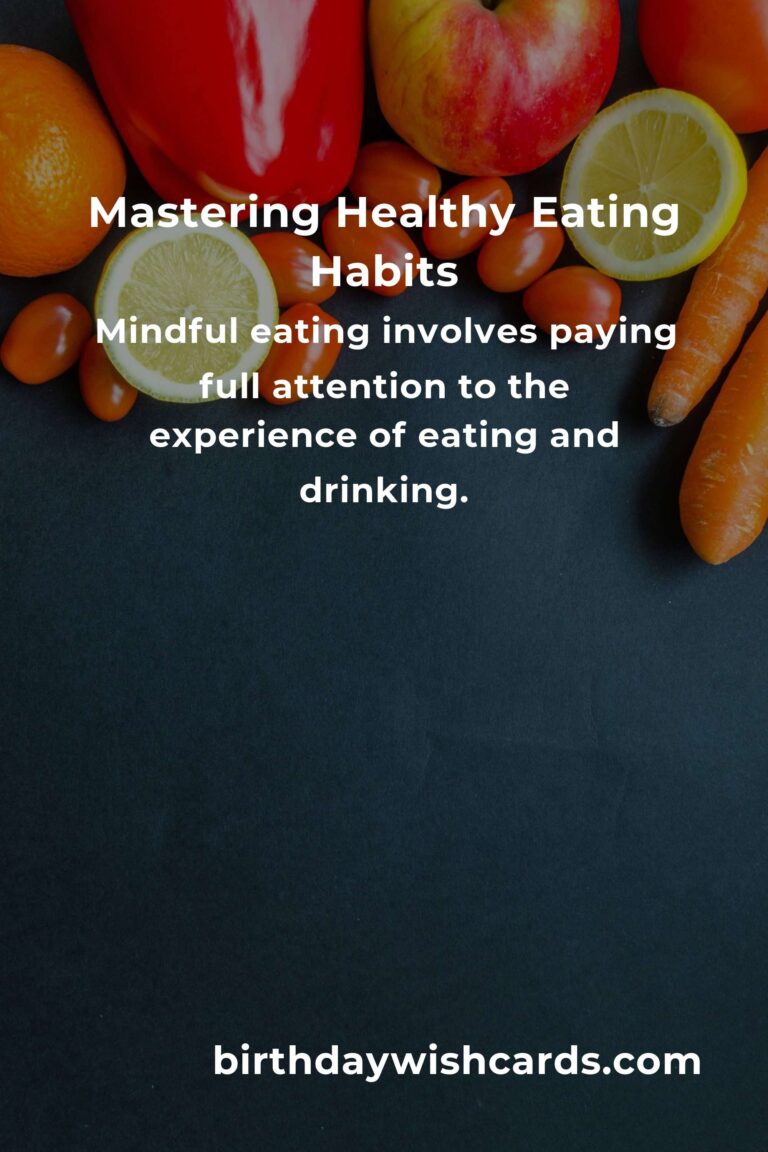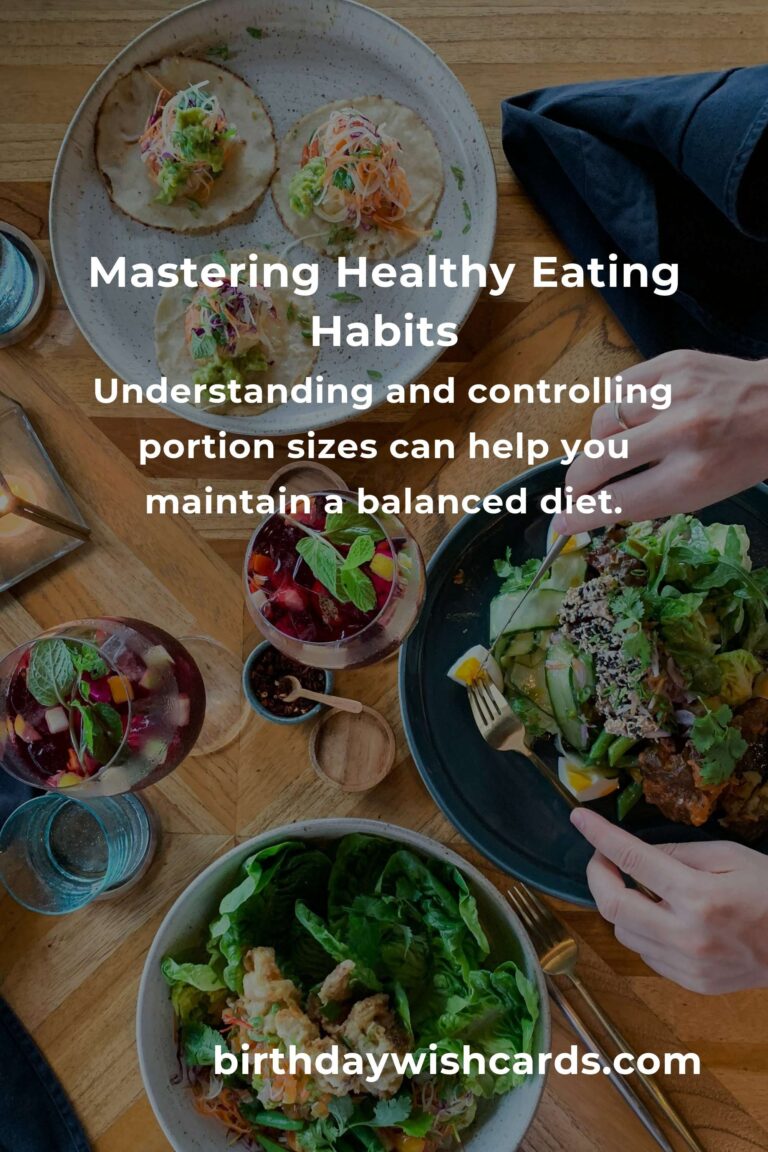
Adopting healthy eating habits is essential for maintaining a robust lifestyle. With the prevalence of fast food and processed meals, it can be challenging to stick to nutritious choices. However, with a few strategic adjustments, you can enjoy a balanced diet that promotes wellness and vitality.
1. Plan Your Meals
One of the most effective ways to ensure you eat healthily is to plan your meals in advance. By doing this, you avoid the temptation of last-minute, unhealthy food choices. Consider setting aside time each week to prepare a menu, listing all meals and snacks.
2. Incorporate a Variety of Foods
A diverse diet is crucial for obtaining all the necessary nutrients. Ensure your meals include fruits, vegetables, lean proteins, whole grains, and healthy fats. This variety not only boosts your nutrient intake but also keeps your meals exciting.
3. Control Portion Sizes
Overeating, even healthy foods, can lead to weight gain. Understanding and controlling portion sizes can help you maintain a balanced diet. Use smaller plates, and pay attention to hunger cues to prevent overeating.
4. Stay Hydrated
Drinking enough water is essential for overall health. Often, we confuse thirst with hunger, leading to unnecessary calorie consumption. Aim for at least eight glasses of water a day and consider hydrating foods like cucumbers and watermelons.
5. Limit Added Sugars and Salt
Excessive sugar and salt intake can lead to health issues such as hypertension and diabetes. Be mindful of processed foods, which often contain high levels of both. Opt for natural sweeteners like honey and season foods with herbs and spices instead of salt.
6. Practice Mindful Eating
Mindful eating involves paying full attention to the experience of eating and drinking. This practice helps you enjoy your meals more and recognize hunger and satiety cues, which can prevent overeating.
7. Avoid Skipping Meals
Skipping meals can lead to overeating later in the day as your body compensates for the lost energy. Ensure you have three balanced meals each day, complemented by healthy snacks if needed.
8. Seek Professional Guidance
If you’re struggling to develop healthy eating habits, consider consulting a nutritionist or dietitian. They can provide personalized advice and support to help you achieve your dietary goals.
Incorporating these tips into your lifestyle can lead to significant improvements in your overall health. Remember, consistency is key, and small changes can lead to substantial benefits over time.
Adopting healthy eating habits is essential for maintaining a robust lifestyle. Plan your meals in advance to ensure you eat healthily. A diverse diet is crucial for obtaining all the necessary nutrients. Understanding and controlling portion sizes can help you maintain a balanced diet. Drinking enough water is essential for overall health. Be mindful of processed foods, which often contain high levels of added sugars and salt. Mindful eating involves paying full attention to the experience of eating and drinking. Consider consulting a nutritionist or dietitian for personalized dietary advice.
#HealthyEating #NutritionTips #BalancedDiet #Wellness #HealthyLifestyle













